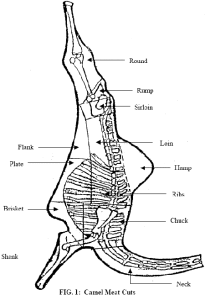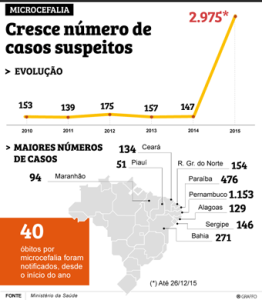Mohammad writes:
re: Camels win Santa’s heart
Dear Dr. Racaniello and TWiV team,
This is Mohammad, your biggest fan from Saudi Arabia, Riyadh in particular. I’ve been listening to TWIV since 2011. It all started when I searched the word science in the IOS podcast app, the rest is viral history. TWiV keeps me constantly informed about recent advances in virology and vaccinology. I’ve been thinking on writing to you and your fabulous team for some time now. The latest episode (369) was the straw that broke the camel’s back. Allow me to answer a few of the questions raised during the episode. As to how camel meat tastes, it is very similar to beef but not as fatty, yet still tender. The preferred meat cut is the back (Sirloin and Chuck, see attached picture), the rest is preferred ground for other dishes. We mostly cook it by boiling / roasting. Pressure cookers are frequently used too. As for camel riding, dromedary camels are ridden behind the hump.
It is currently 10 C in Riyadh with 40 % chance of rain. As a side note, last week (and many times in the past years as well) it snowed! I know! Please see attached pictures for Mr. Camel.
I also have breaking news to you guys, Santa is upgrading his drive from reindeer to camel (evidence in the picture attached) I guess global warming contributed to his decision.
Happy Holidays to you all, wishing you a great “even” year,
Mohammad




Steen writes:
At 1:37:46, Vincent asks “Does PLOS allow web scraping? Do they have an API?”
PLOS articles are under a CC-BY license, and therefore can be freely downloaded and reused: https://www.plos.org/open-acce…
Presumably they do not want people to scrape and rescrape too much, to avoid hammering their servers. Cf.
https://www.plos.org/about/ter…
PLOS has multiple APIs: http://api.plos.org/
There are interfaces to this API from popular programming languages. See e.g. https://ropensci.org/tutorials…
Michael Eisen, mentioned earlier in the show, has said in various places that frustration with restrictions on mining data from full text articles drove him and Pat Brown to co-found PLOS.
LilyM writes:
On the topic of runny noses, I recently read a comment saying: “[nose cream] keeps nasal passages moist when you’re travelling so you don’t get tiny fissures in the membranes, preventing viruses from getting in.” This doesn’t intuitively sound right, but I’m not of a science background so thought here would be a good place to ask for clarification! Can anyone smarter offer their thoughts?
Wink writes:
TWIV Team,
Another great podcast! (Aren’t they all?)
As Vincent pointed out, the particular stresses that trigger herpes simplex virus (HSV) to reactivate probably evolved to promote transmission. Completely ignoring the anthropomorphism admonition, I wonder if cut nerves, fever and slamming of doors suggest to HSV: “Let me out of here before my host is dead!” and that UV light makes HSV think: “My host must be awake now and more likely to contact another uninfected host.”
Wink Weinberg (Author, “No Germs Allowed!“)
Atlanta (where it was 73F or 23C on Christmas Day)
from @dylnwhite on twitter:
The pregnant camel joke came from Zootopia preview before the Star Wars movie. At least that’s where I heard it
Esper writes:
Hi TWIVomics
I hope this email finds you all well and free of pathogenic viruses.
My name is Esper Kallas, an ID specialist and Professor at the Division of Clinical Immunology and Allergy, University of São Paulo, Brazil.
I have been addicted to TWIV since a friend from U. Wisconsin participated in the GBV-C episode (David O’Connor, episode #260). Since then, never missed one episode. After long silent listening, I decided to write for the first time, motivated by the ongoing events in my country, potentially related to the Zika virus.
In the last episode, Emma wrote about events taking place in the small town of Itapetim, State of Pernambuco, Northeastern Brazil, which I will describe a bit later in this email. Before, let me bring some background information on the current situation.
Most believed Zika was a largely benign virus, causing a self-limited disease, clearly described in episode #368. Its circulation was documented after an outbreak became noticed in the State of Bahia (NE Brazil) by a group led by Guilherme Ribeiro, a talented young Infectious Diseases Scientist from Fiocruz (PMID: 26584464, Emerg Infect Dis. 2015 Dec;21(12):2274-6, free access)
However, things started to get awkward around October 2015, when a single hospital in Recife (NE Brazil) and some other practicing Obstetricians and Pediatricians from the region started reporting a mounting number of microcephaly cases in newborns, later confirmed by the national registry of newborns. The numbers are astonishing. The graph below depicts the number of cases per year prior to the surge in 2015. Only this year, 2,975 cases were reported by December 26, the vast majority in the second semester of the year. Cases are concentrated in the Northeast (map), with 2,608 cases, including 40 stillbirths or short living newborns.

In response to the situation, the Brazilian Ministry of Health has declared a national public health emergency (http://portalsaude.saude.gov.br/index.php/cidadao/principal/agenciasaude/20629-ministerio-da-saude-investiga-aumento-de-casos-de-microcefalia-em-pernambuco).
The Brazilian Ministry of Health has been presenting updates every week (see link: http://portalsaude.saude.gov.br/index.php/o-ministerio/principal/leia-mais-o-ministerio/197-secretaria-svs/20799-microcefalia). It is important to observe some imperfections in these numbers: 1. There may be an over reporting after the news made to the big media, suggesting an association between microcephaly and Zika virus. 2. The criterion to consider a microcephaly case has been changed after the current epidemic from 33cm to 32cm; this is because 33cm of head circumference is sitting in the 10th percentile of newborns at 40 weeks of pregnancy and the adjustment would bring the limit to the 3rd percentile, increasing the specificity to detect a true microcephaly case (this may result in an over reporting in the beginning of the epidemic).
The association between Zika virus infection and microcephaly was suspected since the beginning, when Brazilian health authorities ruled out other potential causes, together with the fact that the microcephaly epidemic followed Zika virus spread. Further evidences were the two positive RT-PCR for Zika RNA in two amniotic fluids obtained from two pregnancies of microcephalic fetuses and a stillborn microcephaly case with positive tissues for Zika RNA. In fact, French Polynesia went back to their records and also noticed an increase of microcephaly case reporting, following their epidemic by the same virus strain in 2013 and 2014.
Now, Zika virus transmission has been detected in several countries in the Americas (http://www.paho.org/hq/index.php?option=com_topics&view=article&id=427&Itemid=41484&lang=en).
Although strong epidemiological data suggest the association between Zika virus and the microcephaly epidemic, a causal link between the virus and the disease is still lacking and is limited to few case reports. Many questions still remain. Does the virus damage embryonic neural tissue? What is the percentage of fetuses getting infected when the mother acquires Zika virus during pregnancy? Does the stage of pregnancy interfere with virus ability to be transmitted to the fetus and the development of neurologic effects? Are there other neurological defects related to Zika virus infection? Is there another cofactor involved, such as malnutrition or other concurrent infection? All these questions are exceedingly important to provide counseling to pregnant women and those who are planning to become pregnant, especially in Northeastern Brazil. In fact, Brazilian authorities have been recommending avoiding pregnancy until this situation is further clarified.
The microcephaly epidemic impact is unimaginable. It is a tragedy. These children are compromised for life and the impact on their families is beyond any prediction.
Back to the story sent by Emma. A small town in the North of Pernambuco State, named Itapetim, has almost 14 thousand inhabitants and has reported 11 cases of microcephaly in the past 3 months. This very same town has been suffering from a prolonged drought, since September 2013 when the last reservoir went dry. Perhaps the storage of clean water or the limited resources has led to the best environment for arbovirus spread and the development of microcephaly.
But the Zika virus’s impact may be reaching further. An increase in Guillain-Barré syndrome cases has also been noticed in the Northeast of Brazil, possibly related to the epidemic.
Several groups have been trying to establish animal models to study the interaction of Zika virus with neural tissue. The forthcoming developments are critical to better understand the virus immunopathology and confirm (or refute) the association between the virus infection and neurologic damage in fetuses and in the infected host developing Guillain-Barré syndrome. Many things still shrouded in mystery.
Keep on the good work. I will keep on listening!
Esper
PS1: NYTimes published today an extensive article on the microcephaly epidemic in Brazil (http://www.nytimes.com/2015/12/29/health/zika-virus-brazil-mosquito-brain-damage.html?ref=health&_r=0).
PS1: If I may, here is a suggestion for the weekly picks. An article in the most recent New Yorker introduced me to the Foldscope project. It is based on the making of a microscope origami-based, developed by the research team at Prakash Lab at Stanford University. Fascinating gateway to make the microscopic world much more popular.
www.foldscope.com
Open access link to foldscope methods paper in PLoS One
Why I listen to TWiV contest entries 280 characters or less
Alexander writes:
Well . . . first of all, I need to know what the weather is in South Carolina, Florida, Michigan and San Diego. That’s it, mostly.
Oh, there are a few other reasons.
Most of all, I appreciate the discussion and analysis by people with experience, dissecting papers and figures. I’m as interested in the findings that don’t impress you as the ones that do, the arched eyebrow of skepticism that only comes with expertise. Lots of things “sound good” — only people with experience are able to say “sounds good, but doesn’t work”.
And I’m particularly interested in what you _don’t_ know. I found the paper you did a while back on horizontal gene transfer in an Antarctic lake fascinating (TWIM #68), because every one of the panel said they didn’t understand the mathematics of the analysis (hint: would be great to have a guest sometime who specializes in just that). Even Elio said he didn’t know . . . and I thought he knew everything . . .
I enjoy the contrasts between TWIV, TWIM and TWIP. TWIV is the most “inside baseball” — because of Professor Racaniello’s expertise, TWIV tends to assume a bit more knowledge, and typically Vincent knows the people and work being reported on. With TWIP and TWIM, Vincent doesn’t always know the details of the critters being discussed or the investigators, so he’s more a voice of the “educated curious”— that tends to make these two podcasts most accessible.
Nomination for outstanding episode: “TWIV 161 Concerto in B” (guest Gabriel Victora)
Just outstanding. This episode manages to elucidate four distinct subjects, none simple
1) maturation and selection process of B cells
2) two photon excitation microscopy
3) the complex mathematics required to infer the fates of B cells from intermittent observations
4) the recapitulation of natural selection in the lymph nodes.
Awesome. Gabriel was a great guest, and all the panel were in top form clarifying and amplifying subtle points . . . goes on your greatest hits album . .
kind regards and thank you so much for all you do . . .
Matthew writes:
Patient in, patient out.
Headache? Send to CT.
Seizure? Give Keppra.
Fever? Culture, x-ray, and maybe a Tb test. No, refer to ID.
Autoimmune disease? Must be genetic! Steroids.
This is what we know, but I think it will take a lot more if medicine is to progress.
Thanks for your podcast.
Buck writes:
I am trying to make CRISPR ants. twiv helped me to see the possibilities of molecular biology – part of the reason I switched from ecology to genetics. Ants are fascinating (http://xkcd.com/1610/), but their viruses are almost unknown. Principles of Virology could help me to our new genetic tools to study viruses in our ants!
Elizabeth writes:
Here’s my entry for this week’s textbook contest. Thanks for all you do!
Elizabeth
——————-
I like TWiV on the treadmill
and when riding the T
yet mostly I listen
while doing tc.
I’ve made many cell lines
and spent hours in the hood
but I’ve got TWiV!
So as Rich says, “all good!”
Please send Edition Four
and then I’ll have success
remembering to say
cells produce … not express!
Jackson writes:
TWIV allows me to stay current in all aspects of virology , entertained, informed about science in general and it helps inform my career decisions
Aryel writes:
Hi TWIV! My name is Aryel and I am an undergraduate Biochemistry major at the University of Rochester. It is currently 7C and raining here in Rochester.
The reason I listen to TWIV is to pass the time while I kill fruit flies working as a Drosophila lab technician and to learn more about virology, my first biology love. I am also just genuinely interested in what the weather is like around the country.
Thanks,
Aryel
Joyrell writes:
Hi Everybody!
My reason for listening: I became infected by the TMiV virus and the only known treatment is to listen to the podcasts. I started listening after my Biology 101 instructor recommended it. I was struggling to memorize terms and found that listening to people using them helped.
Thanks for helping me pass!
Alaina writes:
Dearest Virophiles,
Boy, would I love a copy of the new textbook! TWiV is far and away my favourite podcast, and you’ve changed my life. Like many of your newer listeners I started listening to TWIV last year during the 2014 Ebola outbreak, and have emailed you a couple of times on that subject. TWiV has inspired me to get into systems biology and bioinformatics, and to actually do some science rather than just reading about it: I’m now doing bioinformatics for a human genomics project at work, and I couldn’t be more thrilled.
But! On to the book contest, and the purpose of my email.
I am also the Education and Outreach coordinator for DIYbio.to, a Toronto-based molecular biology hackerspace where we have study groups (among many other things). We’ve discovered that most of us are TWix listeners, which is pretty cool! What subject is better for us to study together than virology? I submit that there is nothing better! It would go to good use in a public lab where our primary goal is to educate and inspire people to understand that they can do science themselves.
Anyway, if I have to fit my limited cleverness into a similarly limited number of characters, how I offer a TWIV limerick?
Bringing science to the masses –
Each week’s like virology classes.
Though you’ll chase away some
With Alan Dove’s puns,
For the rest of us, discomfort passes.
Love what you do (including the puns!)
All the best,
Alaina
PS: I did follow all of you on Twitter!
Nicola writes:
Dear TWiVome,
Here is my entry for the book contest. I hope this is in on time, as you haven’t chosen winners yet. I’ll accept the judges’ decision on that.
This offering meets the character limit only if you leave out lines 9 and 10 (third and second last lines), but I like them too much not to include them.
X brought me here
But Y did I stay?
Where horses more common than Zebras?
Where mice all are liars
And monkeys tell tall tales
While dogs cats and people get fevras?
There’s Alan and Dickson,
Rich, Kathy and Vincent,
More questions than answers,
Plaque assays, cell cultures,
Friends all to those plagued with bad sicknas.
Thanks for the giveaway!
Nicola,
in CT, where it is currently 10 degrees C and 38 minutes until the solstice.
Sebastian writes:
I listen to TWIV regularly for two reasons. One, it’s nice hearing about science actually working while I wait for my proteins to fail to crystalize. Second, it takes my mind away from my disgusting GTA assignment where I sterilize and clean glassware for hours on end.
Sebastian, MS student
Bouyain Laboratory
University of Missouri – Kansas City
Bryan writes:
Why I listen to TWIV
Learn about viruses, other than flu, while pipetting pig snot
Update my Stacey Schultz-Cherry “name-drop counter”
Keep my dream of a live TWIV in Memphis replicating
—
Bryan S. Kaplan, PhD
Postdoctoral Research Associate
Dept. of Infectious Diseases
St. Jude Children’s Research Hospital
Joseph writes:
Would you believe I research correlations between meteorological conditions and excellent virology discussions? If not, would you believe that your company gets me through long days in the lab?
Curt writes:
I could toil for years and never describe why I appreciate TWiV better than Dickson neatly summed up biology, and, perhaps in a stroke of serendipity, everything else:
Life is a fractal; the closer you look, the more you see.
—
Thanks to the entire TWiV team for all of your time and dedication
Daniel writes:
Hello Vincent and fellow hosts.
I’m afraid I do not have a very creative reason why I would like to win the Principles of Virology. Simply put, I am about to graduate from the University of Colorado Boulder with an undergraduate degree in Biochemistry and I am unsure of what I want to do next. I discovered TWIV, TWIM and TWIP a month or so ago and your wonderful podcasts have rekindled my interest in microbiology, my most loved undergraduate course thus far. TWIV has been incredibly interesting as it combines the subject matter of microbiology with everything I learned in my biochemistry courses. Long story short, I would like to study up on Virology to expand my knowledge of the microscopic universe and hopefully decide whether or not Virology is a path I would like to go down.
Thank you for everything you do. I enjoy your podcasts quite thoroughly and I look forward to each episode.
By the way it is a cool 1°C here in Boulder, CO with clear skies.
-Daniel
Stephen writes:
must stop zombie apocalypse. need the virology books
to develop a vaccine. discovered zombies dont like
cherry trees. currently surrounded by zombies.
delivery by skid loader not possible. have Dr. Dove
air drop books. weather cloudy with 100% chance of
zombies. always a good time.
Carol writes:
Hello TWiVsters,
Are we allowed to enter the email contest if we already entered the twitter contest? You didn’t say we couldn’t, and I really want a copy of Principles of Virology, so I’m going to assume the answer is yes. I will, however, enter with a completely new reason I listen to TWiV in 280 characters or less.
I listen to TWiV in order to hear Vincent pronounce Italian names and in eternal hope of hearing him say “reduviid bug” – there just isn’t enough TWiP to get enough of it. Another reason to listen is that Alan’s punning is almost as good as Vincent’s pronunciation.
Sincerely in need of a textbook,
Carol in Victoria, BC, where it is currently raining, windy, and 9C on the second last day of the semester.
Paul writes:
Hello TWIV!
I hope it’s not too late for the contest but I figure this would be a good opportunity to share my short story in hopes of adding an update to my bookshelf of outdated undergrad textbooks.
Of all my interests as an inquisitive youngster I was most into music, and at the age of 11 I was left not only saddened but also confused at the sudden admission of AIDS and then death of Freddy Mercury. This was obviously at a time when society also shared that same sense of sadness and confusion about HIV/AIDS. Against the wishes of my parents I stayed up late after school to watch the entire Freddy Mercury tribute concert from Wembley Stadium, but was left with a lasting sense of curiosity about what HIV was and viruses in general. Skipping forward many years I had put down the guitar and earned a Masters degree of veterinary virology in 2007 studying the PRRS arterivirus of pigs, but having graduated unsure of my future directions in virology (and my life) I decided to embark on a solo backpacking trip to Africa. I visited Tanzania and Uganda to observe the natural beauty like climbing Kilimanjaro and visiting wild chimps, but mostly to learn about HIV/AIDS and how it has affected the lives of people in a place far from the comforts of home. I spent hours and hours with locals on crowded buses and in remote communities exchanging my knowledge of how HIV works in exchange for their stories, dispelling many of each other’s myths in the process. I ended the journey forever changed and absolutely certain that my path in life was to design a novel drug-free therapy for this horrible virus. The conclusion of this trip in 2008 also coincided with TWIV #1, and I have been a dedicated listener ever since.
After a stint in public service sequencing the genomes of clinical flu isolates during H1N1 and subsequent seasons, I am now a PhD student at the University of Toronto trying to understand the molecular complexities of the fascinating yet incredibly tragic and poorly understood puzzle that is HIV-1. And while I am earning a wage far below the poverty line and working hours that is causing me to age at a far more rapid rate, I have never felt more satisfied with the work I am doing. No matter how many times the stress of the works gets me down, in the end this is about the science and the benefit to humanity, and most especially for the people in other areas of the world who don’t have the luxuries we are so accustomed to like having a roof over our heads and the access to drugs which to them are totally unaffordable. (On a side note did you know it was World AIDS Day last Monday? Most of the the North American public didn’t, because headlines were dominated by David Price signing a $270 million contract with the Red Sox to throw a ball. Imagine what $270 million could do for basic research let alone for providing medicines to people who don’t even have money to buy food.)
TWIV has been such an essential part of this continuing journey of mine and I wanted to thank you for it. Your ability to reach a broad audience on such complex topics has also helped me to translate what I am doing in the lab to others without a scientific background who are interested in my research. Keep up the great work everybody!
Paul
Toronto, Canada
Paul continues:
Hi,
I am so sorry but I was running an assay today and paused the podcast right at the very end before you said to keep it 280 characters or less. I have summed a pertinent point for the contest.
On World AIDS Day, David Price signed a $270 million contract with the Red Sox to throw a ball. Imagine what $270 million could do for basic research and providing anti-retroviral medicines to those who can not even afford to buy food. It won’t stop me from trying to find a cure.
Marion writes:
Is the 280 character contest still on? I need the bookset. I am poor. I need to keep up. I teach underserved students. I aspire to greater things, even in my decrepit and isolated condition. Creativity as criteria is about as objective as study sections, but I keep trying.
David writes:
Undead genetic material from life’s primal soup stood at the cradle of mammals and through target practice keeps humans healthy .
TWIV provides a daily dive in this ravishing world of wonder. It shares an intelligent conversation with absent friends.
Sickeningly sweet viruses.
Helen writes:
Dear Vincent and colleagues,
Thanks for your recent discussion about Zika virus. The emergence of ZIKV in South America may provide an interesting example of how a previously described pathogen can have unexpected effects when it is introduced into new populations and new ecosystems. I am particularly interested in the consequences of ZIKV infection in people who have previously been infected with dengue virus (DENV is highly prevalent in Brazil – most people are seropositive for one or more types of DENV).
As you mentioned in your discussion, the antigenic cross reactivity between ZIKV and DENV viruses complicates diagnosis. This has major implications for large-scale DENV vaccine trials ongoing in the region, so there is an urgent need for reagents that can serologically distinguish ZIKV and DENV.
The massive increase in microcephaly cases that has coincided with the emergence of ZIKV in Brazil is alarming and it is important to determine the cause. It would be very surprising if ZIKV turns out to cause microcephaly: although a number of different viruses cause congenital abnormalities, including microcephaly, this is not something that has been associated with flaviviruses previously (and if DENV produced microcephaly at any reasonable rate we would know about it, due to the large number of infections worldwide). So, if a causal role for ZIKV in microcephaly is demonstrated, this would represent a new presentation for ZIKV and flaviviruses generally. One question is why we would observe microcephaly in this current outbreak of ZIKV infection, but not in previous ones. One thing that is different about the current outbreak is that ZIKV infection is occurring in an area of DENV hyperendemicity (i.e. multiple serotypes of DENV co-circulate so ZIKV is infecting people who are already seropositive for one or multiple types of DENV). The antigenic cross-reactivity between ZIKV and DENV may create the potential for antibody dependent enhancement (and new clinical presentations), as is the case for infection by different DENV serotypes.
We have studies planned to address all of these questions, so stay tuned!
Best,
Helen
*************************************************************
Helen Lazear, Ph.D.
Assistant Professor of Microbiology & Immunology
The University of North Carolina at Chapel Hill
Daniel writes:
Dear TWIV Drs.,
I saw this and thought of TWIM but since TWIM doesn’t do picks I figured I’d send it in to TWIV.
http://www.ufunk.net/en/artistes/rogan-brown/
Is this worth a set of your books? Didn’t think so. Anyway I want to keep my amateur status so I can proselytize TWI* with a clear (unbribed) conscience.
-drl
I just realized that I didn’t sign it. I guess I’ve written in picks enough to assume familiarity.
So let me sign it:
– Dan
PS. I too loved the “See androids fighting” reference. I’m a huge RHPS fan.
Stephen writes:
Ars Science Q&A: How to deal with science denialists | Ars Technica
http://arstechnica.com/staff/2015/12/ars-science-qa-how-do-deal-with-science-denialists/
Venkat writes:
Dear TwiVistas,
Here’s my listener’s pick. It is a software called “Kabisa” developed by the Institute of Tropical Medicine at Antwerp. It is a nice learning tool for clinicians involved in Tropical medicine practice. It is quite detailed and not like one of those iTunes apps for whiling away your time.
Venkat
